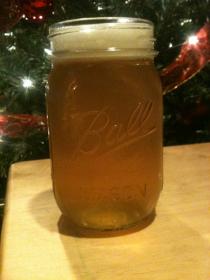Formito
Well-Known Member
Hey all,
I was thinking of making a simple cream ale(5.25 gal batch recipe,75% eff):
4# pilsen
4# pale
1# flaked corn
1# corn sugar
.5 oz saaz at 60
.5 oz saaz at 2
and just doubling the bill to make a concentrated wort that I could dilute into 2 5 gallon batches after the fact. I'm using this as a time saver but I figured I could also compare yeast strains this way.
My question is: do I lose anything doing this in a 5.25 gallon boil and watering it down? I don't have a 15 gallon kettle(yet) so I wanted to give this a try.
I was thinking of making a simple cream ale(5.25 gal batch recipe,75% eff):
4# pilsen
4# pale
1# flaked corn
1# corn sugar
.5 oz saaz at 60
.5 oz saaz at 2
and just doubling the bill to make a concentrated wort that I could dilute into 2 5 gallon batches after the fact. I'm using this as a time saver but I figured I could also compare yeast strains this way.
My question is: do I lose anything doing this in a 5.25 gallon boil and watering it down? I don't have a 15 gallon kettle(yet) so I wanted to give this a try.








































![Craft A Brew - Safale BE-256 Yeast - Fermentis - Belgian Ale Dry Yeast - For Belgian & Strong Ales - Ingredients for Home Brewing - Beer Making Supplies - [3 Pack]](https://m.media-amazon.com/images/I/51bcKEwQmWL._SL500_.jpg)

















